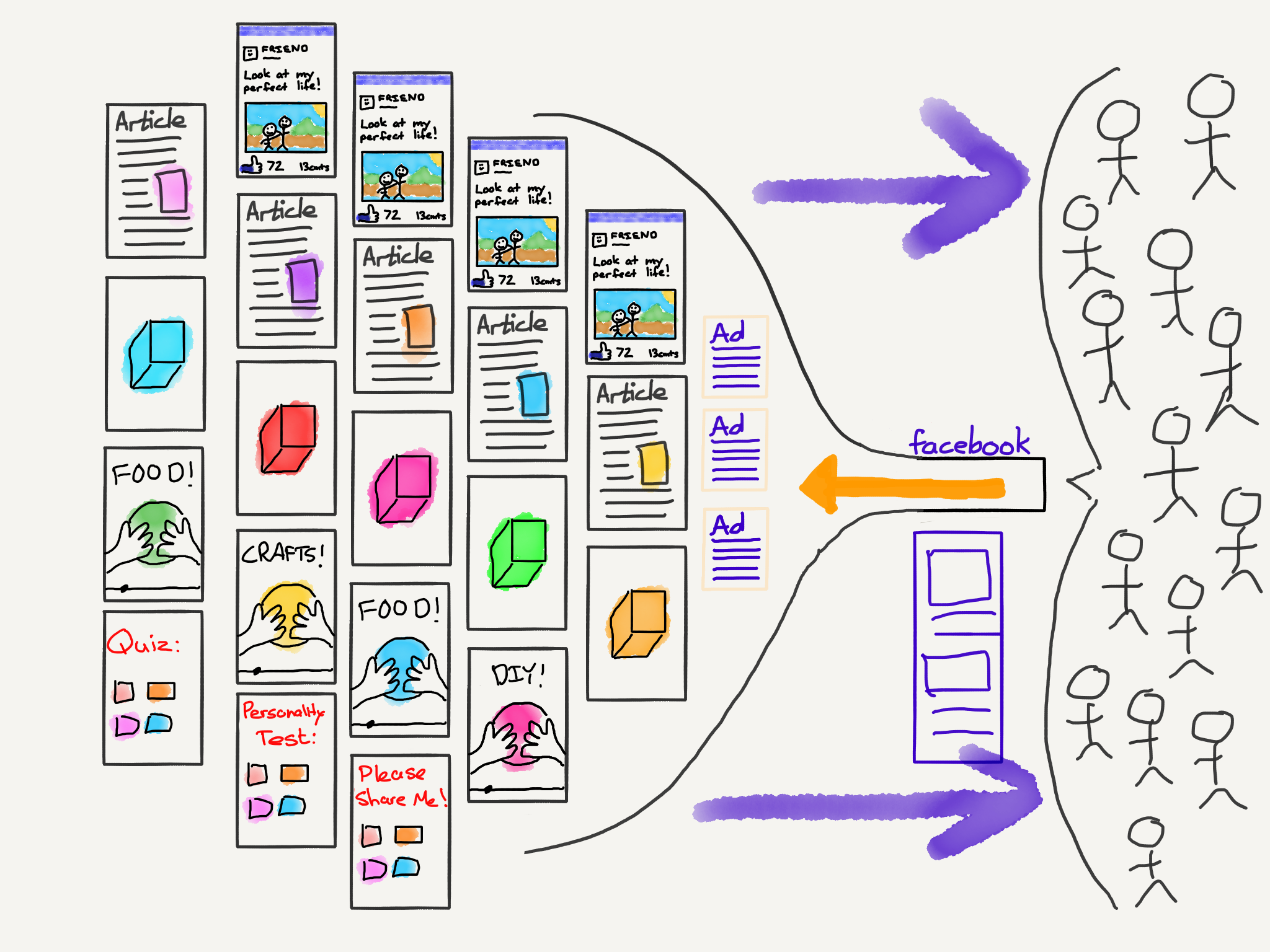It is certainly possible that, as per recent speculation, Facebook CEO Mark Zuckerberg is preparing to run for President. It is also possible that Facebook is on the verge of failing “just like MySpace”. And while I’m here, it’s possible that UFOs exist. I doubt it, though.
The reality is that Facebook is one of the most powerful companies the tech industry — and arguably, the world — has ever seen. True, everything posted on Facebook is put there for free, either by individuals or professional content creators;
and true, Facebook isn’t really irreplaceable when it comes to the generation of economic value; and it is also true that there are all kinds of alternatives when it comes to communication. However, to take these truths as evidence that Facebook is fragile requires a view of the world that is increasingly archaic.
Start with production: there certainly was a point in human history when economic power was derived through the control of resources and the production of scarce goods:

However, for most products this has not been the case for well over a century; first the industrial revolution and then the advent of the assembly-line method of manufacturing resulted in an abundance of products. The new source of economic power became distribution: the ability to get those mass-produced products in front of customers who were inclined to buy them:

Today the fundamental impact of the Internet is to make distribution itself a cheap commodity — or in the case of digital content, completely free. And that, by extension, is why I have long argued that the Internet Revolution is as momentous as the Industrial Revolution: it is transforming how and where economic value is generated, and thus where power resides:

In this brave new world, power comes not from production, not from distribution, but from controlling consumption: all markets will be demand-driven; the extent to which they already are is a function of how digitized they have become.Last Thursday:
This is why most Facebook-fail-fundamentalists so badly miss the point: that the company pays nothing for its content is not a weakness, it is a reflection of the fundamental reality that the supply of content (and increasingly goods) is infinite, and thus worthless; that the company is not essential to the distribution of products is not a measure of its economic importance, or lack thereof, but a reflection that distribution is no longer a differentiator. And last of all, the fact that communication is possible on other platforms is to ignore the fact that communication will always be easiest on Facebook, because they own the social graph. Combine that with the fact that controlling consumption is about controlling billions of individual consumers, all of whom will, all things being equal, choose the easy option, and you start to appreciate just how dominant Facebook is....MUCH MORE
Ein Volk, Eine Welt, Ein Zuck: "Mark Zuckerberg’s full 6,000-word letter on Facebook’s global ambitions" (FB)